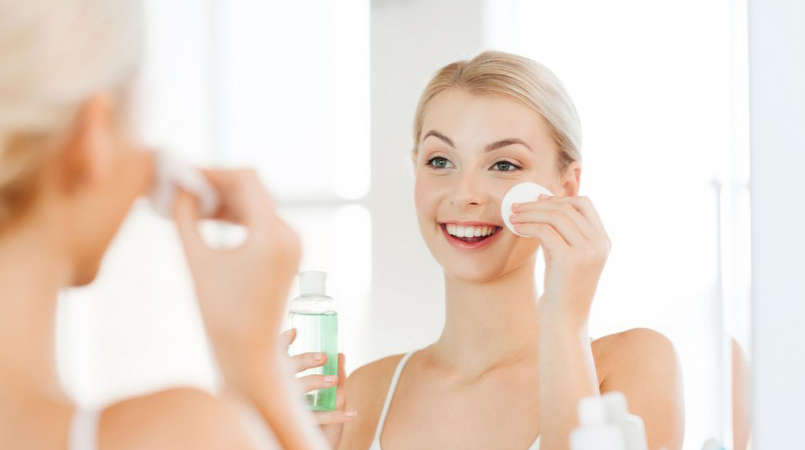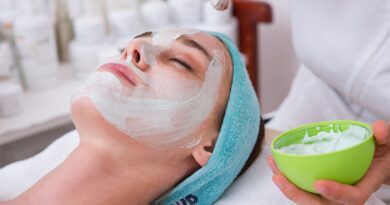Uncover The Best Ways To Improve Your Sensitive Skin
Dealing with the constant irritation, rashes, dryness, and discomfort makes everything more difficult, from washing your face to finding quality makeup products that won’t leave your face swollen and red. Even if you’re all-natural and don’t wear makeup, you could be dealing with sensitive skin outbreaks that cause you discomfort and make you feel uncomfortable.
Thankfully, finding the right routine and natural chemical-free products is possible and allows you to finally begin enjoying healthy skin that isn’t causing you discomfort.

Here are some of the simple steps that you can take that will help you to achieve the best skin you’ve had in years.
Have you been making these face cleaning mistakes?
It’s recommended that you use a gel or cream cleanser to help remove impurities without causing irritation and dryness. But it’s important that when you’re cleansing, you use your fingers. Most people will use a washcloth or brush which causes irritation. You should then rinse with cool water and gently pat your face dry with a washcloth. Be sure that you are not overdoing it with the cleanser; washing just once a day is enough to keep your skin looking healthy.
Stop using the products that are causing discomfort, redness, and inflammation.
It’s likely you don’t necessarily know which products are causing the outbreaks and constant discomfort. One of the biggest causes of tightness, itchiness, and redness is alcohol-based, astringent toners, artificial fragrances, and other harsh chemicals that are found in skincare products. There are a ton of products when it comes to skincare for sensitive skin which makes choosing products that are free from fragrances and preservatives easier than it ever was. Be sure that you are staying away from parabens, sodium lauryl sulfates, synthetic dyes, petrochemicals, and phthalates that are often found in many products. And choose products that have anti-inflammatory properties such as, Hyaluronic acid, Aloe vera, Vitamin E, Olive oil, Chamomile, Shea butter, Sunflower seed oil, and Coconut oil.
Stop taking long hot showers. It’s drying out your skin.
You’ve likely been told this before, but hot showers cause sensitive skin to react negatively. Hot water disrupts the cells in the outer layer of your skin called the epidermis and prevents moisture from penetrating your skin. So instead of hot showers, try taking lukewarm showers that will not melt away the moisture in your skin and use an all-natural soap that doesn’t contain harsh chemicals.
Figure out exactly what is triggering your symptoms.
There are a few different reasons for your symptoms – allergic skin reactions, overly dry skin, and environmental factors. It’s not easy to uncover the cause of skin reactions, but it’s going to be the most important step to improving your symptoms. Treating the symptoms over and over again won’t stop them from happening. Getting to the root cause is the first step to healing and learning how to manage your sensitive skin better.
More than likely, you’ve been trying to figure this out. It isn’t easy and could be a number of things – food sensitivities, seasonal changes, stress or lack of sleep, pollution, and dehydration. One of the best ways to figure this out is with a journal to log your symptoms, reactions, and potential causes. This takes time, but you’ll end up finding the common denominator over time.
Poor diet leads to skin sensitivity.
Poor eating habits mean poor nutrition, which can contribute to skin sensitivity. Your blood sugar is one of the leading causes of skin problems. The foods that you eat are directly affecting the way that you feel, how your skin looks, and your overall health. The spikes in your blood sugar levels could be the culprit. The spike in these levels causes an increase in insulin which is known to cause inflammation and acne.
But that’s not all. Food allergies can be causing your acne, eczema, and other skin-related issues. The most common foods are refined carbs, sugar, and dairy. Try to reduce or eliminate these food items and then slowly reintroduce them to uncover the triggering foods.
Your best bet is to start eating a healthy diet filled with fruit, vegetables, whole grains, nuts, seeds, beans, and omega 3 fatty acids that will keep your skin hydrated. You’ll get all the vitamins and minerals your body needs to function properly. It’s been proven that eating antioxidant-rich foods protects the health of your skin.



